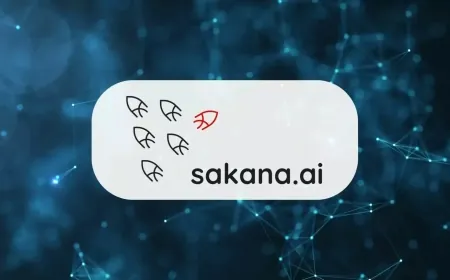Meta Launches Llama 4 AI Models, Aims to Challenge Rivals with Advanced Features
Meta launches powerful Llama 4 AI models, blocks EU access, and teases its biggest model yet—Behemoth. Major challenge to GPT-4o and Gemini begins.

Meta has officially released its next-generation Llama 4 models, marking a significant step forward in the company's AI development strategy. The new lineup includes Llama 4 Scout, Maverick, and the soon-to-be-completed Behemoth. These models were trained using large-scale, unlabeled datasets spanning text, images, and video, with a strong emphasis on multimodal comprehension.
The timing of the release — on a Saturday — reflects Meta’s urgency to stay ahead in the AI race, particularly as competitors like China’s DeepSeek have recently unveiled high-performing models that challenge the capabilities of Llama 2.
Scout and Maverick Now Public, Behemoth Still in Training
Llama 4 Scout and Maverick are now publicly available for developers through Meta’s platforms, including Llama.com and partners like Hugging Face. Scout is designed to handle large volumes of information efficiently, with a context window of up to 10 million tokens—making it well-suited for document summarization and complex reasoning tasks over extensive codebases. It can operate on a single Nvidia H100 GPU, offering broader accessibility to developers.
Maverick, which Meta positions as its strongest general-purpose assistant, boasts 400 billion parameters in total, with 17 billion active per query. It is intended for tasks like creative writing and complex problem-solving. Internal benchmarking shows Maverick outperforms GPT-4o and Gemini 2.0 in several coding, reasoning, and multilingual tasks, though it still falls short of newer models like Gemini 2.5 Pro and Claude 3.7 Sonnet.
Behemoth, Meta’s largest model to date, remains under development. With nearly two trillion total parameters and 288 billion active, Meta claims Behemoth already shows signs of outperforming many top-tier models in STEM-related benchmarks.
License Restrictions May Limit EU Adoption
Despite the global excitement, Meta has placed strict licensing restrictions on the use of Llama 4. Companies based in the European Union or with principal operations there are barred from using or distributing the models—likely a response to the EU’s growing data privacy and AI regulatory frameworks. Furthermore, companies with more than 700 million monthly users must apply for special licenses, which Meta can approve or deny at its discretion.
These limitations could affect the adoption of Llama 4 in key markets, especially as AI regulations tighten globally.
Meta AI Assistant Now Powered by Llama 4 in 40 Countries
Meta has already integrated Llama 4 into its virtual assistant, Meta AI, across 40 countries in apps like Instagram, WhatsApp, and Messenger. However, the multimodal features are currently limited to English-speaking users in the United States. The assistant now draws on Llama 4’s improved reasoning and contextual capabilities to deliver more nuanced responses in daily interactions.
New AI Architecture Brings Efficiency, Not Just Power
Llama 4 is Meta’s first model collection built on a mixture-of-experts (MoE) architecture. This design allows only a subset of the model’s "experts" to activate during any given task, significantly reducing the computational load while maintaining strong performance.
For example, Scout has 109 billion total parameters but only 17 billion active per task. This makes it not only cost-effective but easier to scale on lower-end infrastructure—a strategic move to widen Meta's reach among developers and researchers.
Greater Response Range on Political and Social Topics
One of the more controversial changes is that Llama 4 has been fine-tuned to respond to a broader range of politically and socially "debated" topics. Meta says the models have been adjusted to provide fact-based responses without avoiding questions or filtering certain viewpoints—marking a shift from previous versions that were often criticized for over-moderation.
This change comes as public figures, including allies of former President Donald Trump, continue to accuse AI platforms of political bias. Meta’s adjustments appear to be a direct response to this pressure, aiming to create models that are more neutral and inclusive in their responses.
While Llama 4 models are impressive in technical benchmarks, Meta's larger goal is to embed them across its ecosystem—from social platforms to enterprise tools. The phased rollout, combined with tiered access and region-specific features, suggests a carefully calculated strategy to scale AI globally while complying with local laws.
The forthcoming release of Behemoth could mark another major milestone. With Behemoth expected to exceed current industry leaders in STEM capabilities, Meta is not just reacting to competition—it’s preparing to lead the next phase of AI evolution.
Also Read: OpenAI Hits $300B Valuation After $40B Funding Round with SoftBank































































